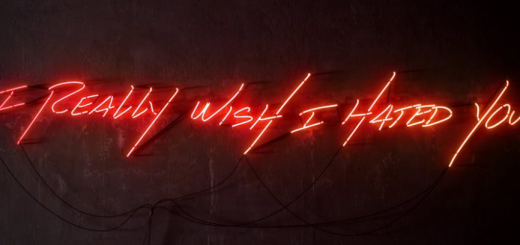MH 4.18.2011 by blink-182 Lyrics Meaning – Unraveling a Date with Desolation
Lyrics
Breakdown in LA
Giving up, giving in to a feeling of violence
There’s hell to pay
So, let’s light another match, stop living in the past
Where nobody can hear me now
Blow the lock off the cage
Watch the children come of age
When their parents stop to take a bow
Nothing takes root in this barren soil
Nothing takes root in this barren soil
Maybe there’s no one there at all
Hold on, the worst is yet to come
Save your money for hired guns
Hold strong, when everything you loved is gone
Slow down, stop living in the shadow of a helicopter
Line ’em up on the wall, coming out with their hands up
Give ’em all the chair
Let it burn, let it fall, let the end of the world come
Who’s left to care?
Nothing takes root in this barren soil
Nothing takes root but we bend and toil
Maybe there’s no one there at all
Hold on, the worst is yet to come
Save your money for the hired guns
Hold strong, when everything you loved is gone
Slow down, stop living in the shadow of a helicopter
Hold on, the worst is yet to come
Save your money for hired guns
Hold strong, when everything you loved is gone
Slow down, stop living in the shadow of a helicopter
Stop living in the shadow of a helicopter
Blink-182’s ‘MH 4.18.2011’ stands as a musical anomaly in their discography—a crossroad where pop-punk sensibilities meet the introspection often reserved for the likes of more somber, grizzled rock veterans. This track isn’t your stereotypical anthem; it’s an enigmatic journey through societal anguish and the dissonance of existence in the contemporary world. As we parse through its cryptically charged lyrics, we find a labyrinth of desperation woven with an astute commentary on socio-political landscapes and the individual’s place within it.
This piece is far from a surface-level composition. It plunges listeners into the depths of a band grappling with more than just the throes of adolescence or heartbreak, a move that perhaps parallels the musicians’ own maturation. Here we tease apart the complex layers of ‘MH 4.18.2011’, unfolding a soundscape that hinges on crisis, rebellion, and the disquiet that comes with awareness—themes that resonate with a disillusioned generation.
Breaking Down the Barriers: A Cry Against Complacency
The opening lines ‘Coming in, coming in, kill the radio silence’ evoke a sudden rupture, an awakening from the mute acceptance of the status quo. The ‘radio silence’ is more than just a metaphor; it represents the collective hush, the lack of meaningful discourse, and the absence of challenge against a backdrop of ‘LA,’ symbolic of both the glamor and the iniquities of Western opulence. The urgency resonates with an almost apocalyptic need for change.
The violence and ‘hell to pay’ are not just aggressive words; they’re harbingers of a society on the brink. These aren’t calls to arms but rather an observation of brewing turbulence within a world increasingly bent on self-destruction. There is a somber warning etched between these lines, urging action yet lamenting the potential futility of such efforts.
The Hidden Meaning Behind the Date – A Haunting Reflection
The title ‘MH 4.18.2011’ itself is shrouded in speculation. Does it refer to an actual date, a significant event, or is it merely symbolic? Fans and critics alike have delved into this mystery, proposing theories ranging from personal anniversaries to cataclysmic events. However, this numeric sequence might merely be a canvas upon which the listener is intended to project their significance—a reflection of the unique and personal meanings we assign to our experiences.
What stands out is how blink-182 uses this anonymized date to allude to a moment of disruption. This is not merely a point on a timeline but a pivot, potentially signifying an internal or external crisis point, intimately felt or widely witnessed, but undeniably transformative. The abstraction leaves room for interpretation, which might just be the crux of its cryptic power.
Barren Soil & the Sterility of Modern Life
Metaphorical in its lament, ‘Nothing takes root in this barren soil’ epitomizes the sterile nature of modern life—a dearth of purpose in the face of materialism and the superficial. The sterility is a twofold curse: nothing grows, nothing changes. The American Dream’s paradigm appears desiccated, leaving a generation to ‘bend and toil’ with perhaps no legacy worth inheriting.
The repetition of these lines throughout the song serves as the gloomy chorus—a reminder that the established systems no longer serve the populace. It’s a stark insight into the heart of a disillusioned citizenry faced with the dire absence of nurturing substance in their cultural and sociopolitical ground.
The Haunting Echo of ‘Helicopter’: A Metaphor for Control
The omnipresent ‘helicopter’ casts a foreboding shadow—whether as a symbol of media surveillance, military oppression, or the intrusive gaze of an authoritarian state. The directive ‘Slow down, stop living in the shadow of a helicopter’ is both an acknowledgment of and a resistance to this panoptic oversight that has pervaded modern existence. There’s a cry to slow the pace, to step out of the frenetic haze that prevents one from noticing the ever-looming blades overhead.
This portrayal of ‘helicopter’—persistent and invasive—echoes the collective anxiety about a future that feels increasingly controlled and predetermined, forcing an uncomfortable awareness of the fine line between protection and control, safety and subjugation.
Memorable Lines & Their Lasting Resonance
‘Hold on, the worst is yet to come’ resonates as the sobering reminder of an uncertain future, a paradox of hope and imminent doom. Every instance of ‘Save your money for hired guns’ leaves an indelible mark, reflecting the cynicism toward a society where safety seems to necessitate a personal army, pointing to the dissolution of faith in communal safeguards.
It’s the articulated glimpses of a reality where empathy loses to apathy, where ‘Let it burn, let it fall’ becomes a viable solution to seemingly insurmountable problems. Such lines are not just words set to melody—they encapsulate the sense of bitter surrender that rings through an era riddled with socio-political chaos. These are the lines that echo long after the song has ended, fueling dialogues and introspective musings in the minds of an age trying to find its footing amidst turbulence.








